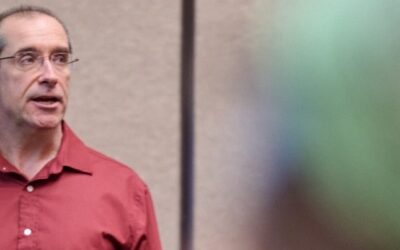I am now nine weeks into my time at the NUHS Whole Health Clinic, and I wanted to share some lessons I’ve learned along the way. Some of these lessons are totally unique to me, while others are shared experiences with my peers. This blog post will serve as a reflection of this time of exponential learning, as well as advice for those earlier in the program.

Everything is Timing; Timing is everything.
By far the most amazing compliment I’ve gotten in clinic so far came from my very first patient. The patient had been to several hospitals recently, and they said this was by the far the most thorough workup and the most they had learned from any of their visits. This isn’t to boast my knowledge or abilities, as I can tell you now that I would have done several things differently during that initial intake and exam. But this story is more so meant to illustrate the importance of giving patients the attention that they so crave. This is the beauty of becoming a doctor who practices holistically. We are going to pay attention to the patient, connect the dots, and be more thorough than the very compartmentalized traditional medical approach. However, with this longer, more detailed approach is the trade-off of efficiency.
Once you embrace the aspiration of being the practitioner who dedicates substantial time with patients, the next task is discovering the Goldilocks zone of treatment duration: not too short, not too long, but just right. Initially, my concern centered around crafting effective treatment plans and conducting thorough examinations. Now, I’m focused on refining my examination approach to ensure visits flow seamlessly and are more efficient, akin to Goldilocks finding the perfect porridge. This will all come with time (pun fully intended).
Getting Over Imposter Syndrome
Imposter syndrome is a rampant affliction that nearly all doctoral students need to overcome. While I am not a fan of everything the infamous chiropractor Aaron Kubal (known for his outspoken presence against the profession on Instagram and Tiktok) has to say, I really liked his approach to imposter syndrome in one of his Q&A sessions. He said the best way to conquer imposter syndrome is to work harder than any other health care practitioner you know. What this means is being the most up-to-date on research, consistent in learning, and constantly refining your skills. I truly believe that knowledge is the antidote to the insecurity that comes with imposter syndrome. I hope this perspective is as helpful and motivational to you as it was to me.
It Helps to Have a Niche
One of the most beneficial steps you can make before getting to student clinic is to find out exactly how you want to practice. Once you find out your niche, do everything you can to excel at your chosen specialty. For students early on in this program, this means exploring all the different clubs and seeing what you want to focus on. Then, I would recommend shadowing doctors of all different types. Shadowing is great for showing both what you want to do and what you don’t want to do. Once you see enough of what you don’t want to do, start spending a lot of time with doctors who are practicing exactly how you want to practice. I would then recommend getting on the board of whatever club correlates to your niche or start the club yourself (this is what I did with bringing Functional Neurology Club back on campus). If you take these steps, you will become one of the go-to people in clinic for your niche, attracting the exact type of patients whom you will want to see.
Perfectionism Can Be Our Biggest Enemy
Theodore Roosevelt famously said, “comparison is the thief of joy.” If comparison is the thief of joy, I say perfectionism is its partner in crime. I learned early on from some of my mentors how destructive this quenchless emotion can be. Personally, it has been something I’ve battled since I realized that I really love and care about school and learning.
I’ve come a long way from beating myself up about less-than-perfect grades, but with each new chapter in life comes a new battle against perfectionism. This remains true during my internship in clinic. It can be very easy to beat yourself up when you first start seeing patients: thinking that one treatment should have been chosen over another, failing to consider an obvious differential diagnosis, or even forgetting a part of the examination.
What I constantly remind myself of is that becoming a doctor is an ever-evolving process – even when we graduate and are out there in practice. I also constantly remind myself of that keyword: practice. Similar to what I wrote about stress in my first blog post, we need to take the good out of perfectionism (the internal drive it gives us to constantly be better) and leave out the bad (never feeling good enough). It may not be possible to rid ourselves of this emotion all together. Rather, we should acknowledge this feeling when it comes around, show ourselves some compassion, and let these feelings of inadequacy pass more quickly each time they come around. Nobody’s perfect, and that is perfectly fine.
Check out Matt’s first blog post here.




0 Comments